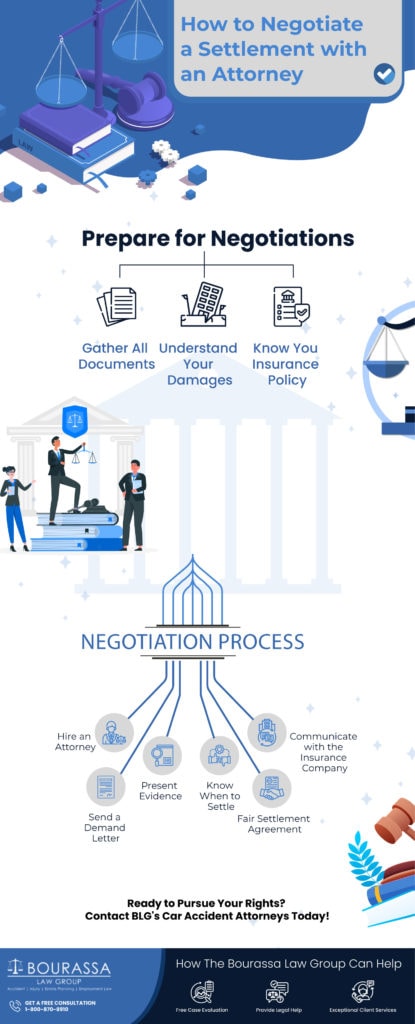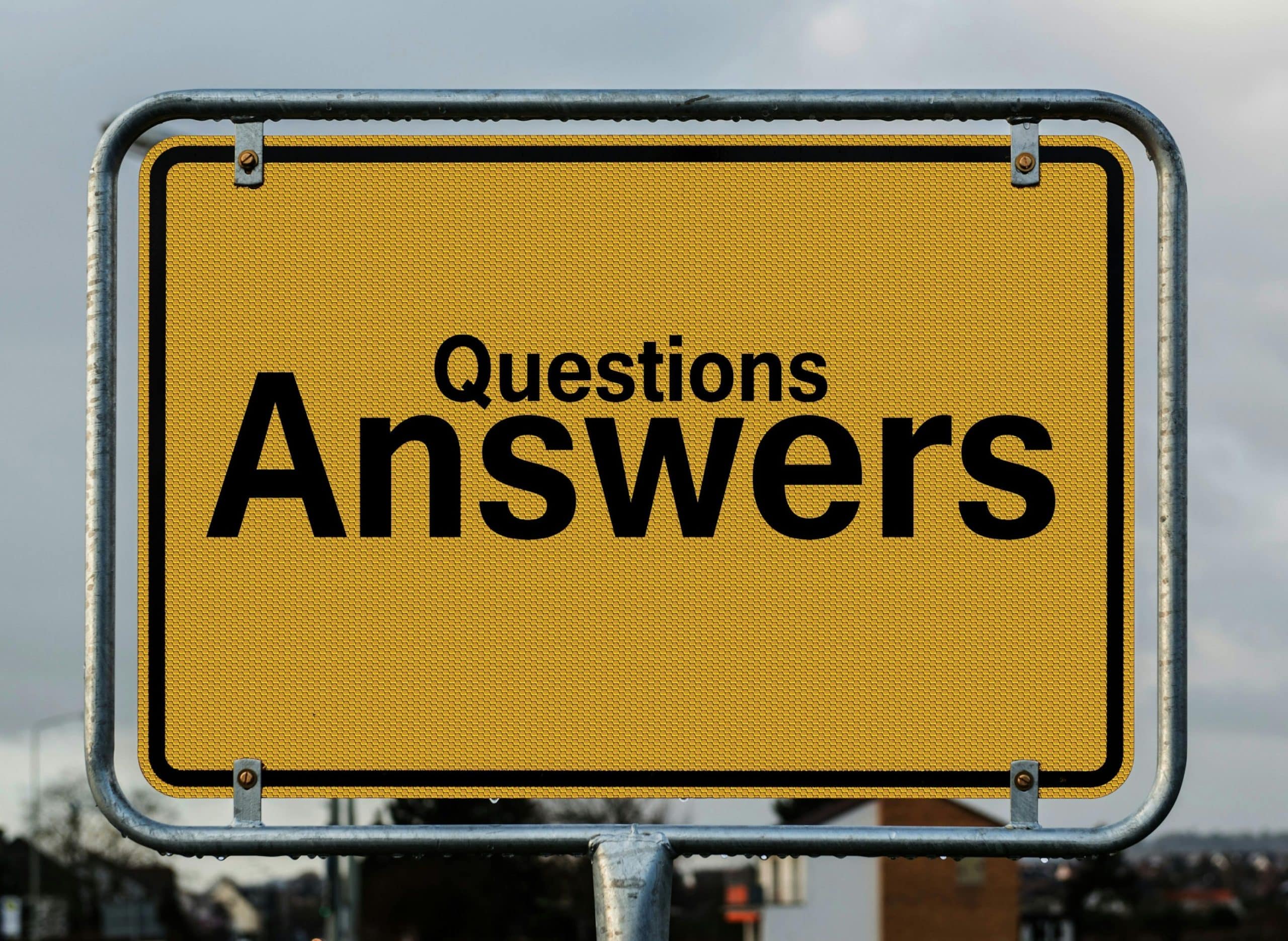
When you find yourself dealing with a personal injury case, one of the most crucial stages in the process is negotiating a settlement with an attorney. The outcome of this negotiation can significantly impact your financial recovery and overall well-being. In this article, we will guide you through the entire settlement negotiation process, providing you with valuable insights and strategies to help you secure a fair settlement.
Importance of Settlement Negotiations
Before we delve into the specifics of negotiation, it’s essential to comprehend why settlement negotiations are a critical aspect of personal injury cases. When you’ve suffered injuries due to someone else’s negligence, you may be entitled to compensation for various losses, including medical bills, lost wages, future medical expenses, and even emotional distress.
However, achieving a fair settlement isn’t always straightforward. Insurance companies, known for their negotiation strategies, are typically keen on minimizing payouts. This is where a personal injury attorney comes into play, advocating for your best interests and working to secure the compensation you deserve.
How to Prepare for Negotiations?
Gather All Necessary Documents
As you begin the negotiation process, it’s vital to have all your documentation in order. This includes medical bills, treatment plans, evidence of the accident (such as photos or videos), and any correspondence with insurance companies. Having a comprehensive record of your losses and injuries is critical for building a strong position during negotiations.
Understand Your Damages
There are two main categories of damages in personal injury cases: economic and non-economic. Economic damages include medical expenses, lost wages, and future medical expenses. Non-economic damages encompass emotional distress, pain, and suffering. Understanding the full scope of your damages will help you determine what constitutes a fair settlement.
Know the Insurance Policy Limits
It’s essential to be aware of the maximum policy limit of the responsible party’s insurance. This limit represents the maximum amount the insurance company is willing to pay out for a claim. If your damages exceed this limit, negotiations can become more complex.
What is the Process of Negotiation?
Negotiating a settlement is a complex process, particularly when dealing with insurance companies and legal teams. Having a skilled attorney by your side greatly simplifies and enhances this journey. In this process, we’ll walk you through the crucial steps and highlight your attorney’s vital role in securing the best outcome for you. Let’s explore the key components of effective settlement negotiations.
Hire an Attorney
While it’s possible to negotiate directly with the insurance adjuster or the other party’s legal team, having an experienced attorney on your side significantly increases your chances of securing a higher settlement. Your attorney can skillfully negotiate on your behalf, ensuring that your best interests are represented.
Send a Demand Letter
Your attorney will typically begin the negotiation process by sending a demand letter to the insurance company or the other party involved. This letter outlines your case, the damages you’ve suffered, and your request for compensation. It’s the first formal step in the negotiation process.
Present Evidence
Strongly present your evidence, such as medical bills, treatment plans, and expert opinions. Your attorney will ensure that this evidence is thorough and compelling, making a strong case for your claim.
Know When to Settle
It’s crucial to be patient during negotiations, but also to know when to settle. Your attorney will advise you on the best course of action based on the offers and counteroffers received. While going to court is an option, a settlement is often the more favorable outcome as it saves time and legal fees.
Fair Settlement Agreement
Once a fair settlement is reached, your attorney will help you draft a settlement agreement that outlines the terms and conditions. This legally binding document ensures that both parties uphold their end of the deal.
Communicate with the Insurance Company
Once the demand letter is sent to the insurance company, the negotiation process officially begins. The insurance adjuster, representing the other party, will review the demand letter and respond with an initial offer. It’s important to remember that insurance adjusters are skilled negotiators and are likely to start with a low initial offer.
Your attorney will be your primary point of contact with the insurance company. They will review the initial offer and work with you to decide whether to accept, reject, or counter the offer. It’s vital to have realistic expectations, and understanding that negotiation can take time, with multiple rounds of offers and counteroffers.
Benefits of Negotiating a Settlement
Opting for settlement negotiations rather than going to court has several advantages:
Faster Resolution: Settlement negotiations tend to reach a conclusion more swiftly than litigation, allowing you to access compensation sooner.
Lower Costs: Legal fees and other expenses associated with court proceedings can be substantial. Negotiating a settlement can save you money.
Less Stress: Avoiding the courtroom can reduce emotional distress and provide a more amicable resolution.
Control: You have more control over the outcome when negotiating a settlement, as you can choose whether to accept or reject offers.
Confidentiality: Settlement negotiations are often private, protecting sensitive information from public scrutiny.
How to Maximize Your Settlement?
To maximize your settlement, it’s crucial to build a strong case, present evidence effectively, and remain patient throughout the negotiation process. Your attorney will guide you in gathering additional evidence, which may include medical records, documentation of medical expenses, and expert testimony.
Moreover, your attorney will work to prove the other party’s liability and demonstrate the extent of your injuries. A strong position can lead to higher settlements, and this is where your attorney’s expertise is indispensable.
How Helpful Lawyers Are in Negotiating Settlements?
Lawyers play a pivotal role in negotiating settlements, especially in legal matters such as personal injury cases, insurance claims, and other legal disputes. Their expertise and experience are invaluable when it comes to securing a favorable settlement. Here’s a closer look at how helpful lawyers are in negotiating settlements:
Legal Knowledge and Expertise: Lawyers possess in-depth knowledge of the law, ensuring that any settlement is legally compliant and fair.
Assessment of Claims: They evaluate the strength of your case, determining its value based on evidence, liability, and damages.
Negotiation Skills: Lawyers are skilled negotiators, capable of handling discussions with opposing parties effectively.
Understanding of Insurance Policies: In insurance cases, lawyers decode policies to maximize settlements without exceeding policy limits.
Evidence and Documentation: They gather and present compelling evidence, from medical records to expert opinions.
Legal Strategies: Lawyers develop strong legal strategies to support your position during negotiations.
Communication Skills: They draft persuasive demand letters and communicate your needs clearly.
Mediation and Alternative Dispute Resolution: Lawyers can recommend and excel in mediation or other dispute resolution methods.
Preparation for Litigation: If negotiations fail, lawyers are prepared to take cases to court, often motivating settlements before trial.
Legal Fees and Contingency Arrangements: Many personal injury lawyers work on a contingency fee basis, aligning their interests with yours.
Stress Reduction: Lawyers manage complex negotiations, relieving stress and allowing you to focus on other matters.
Knowledge of Case Precedents: Lawyers use past case references and legal research to estimate potential case results.
Objective Perspective: They provide an unbiased viewpoint, crucial in emotionally charged disputes.

Consult with a Personal Injury Attorney at The Bourassa Law Group
In personal injury cases, understanding how to negotiate a settlement with an attorney is vital for achieving the best possible outcome. With an experienced legal team by your side, you can navigate the negotiation process effectively, secure just compensation, and ensure that your best interests are protected. If you’ve been injured due to another party’s negligence, reach out to a Nevada-based personal injury attorney to discuss your case. They will assess your case, provide expert guidance, and help you on your journey to fair compensation for your injuries.
In the complex world of personal injury claims, we’ve got your back. Contact BLG today for expert legal representation and effective settlement negotiation. Your path to a fair settlement starts here.
Book your free consultation appointment today!





